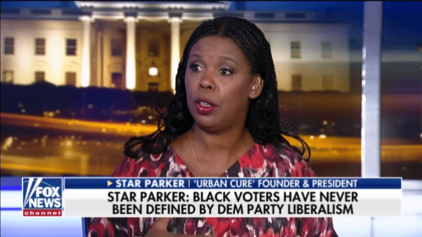
The last Republican who belonged to the group, former Rep. Allen West (Fla.), seemed to enjoy disturbing the hell out of his CBC colleagues by pulling stunts like serving Chick-fil-A chicken and biscuits in 2012 when it was his turn to provide dinner for the meeting—then turning around and walking out of the room, pissing off everybody in the caucus. This came in the midst of the controversy over Chick-fil-A’s opposition to gay marriage, combined with the racial resonance of a fried chicken dinner served to a room full of Black people.
Judging by her disposition, Love promises to be a less combustible member of the group. As more Black Republicans get elected to Congress and actually choose to join the body, the caucus will be challenged to see whether it can advance the interests of the Black community while incorporating divergent political views—a challenge that is actually a microcosm for the challenge facing the entire Black community as more people become disillusioned with the Democratic Party.
Most of the media reports on Love being sworn into the caucus focused on statements she made a few years back, when she unsuccessfully ran for Congress in 2o12. At the time she said of the caucus, “Yes, yes. I would join the Congressional Black Caucus and try to take that thing apart from the inside out.”
“It’s demagoguery. They sit there and ignite emotions and ignite racism when there isn’t,” she said. “They use their positions to instill fear. Hope and change is turned into fear and blame. Fear that everybody is going lose everything and blaming Congress for everything instead of taking responsibility.”
It is the kind of rhetoric that conservatives have been leveling for years at Black politicians who advocate Black-first agendas.
As pointed out by the Washington Post, Love has softened her anti-CBC rhetoric of late, now saying just that change must come “from the inside out.”
Sen. Tim Scott (S.C.), now the only Black Republican in the Senate, declined to join the CBC when he was elected to the House in 2010, saying at the time that the group “highlights the divisions I’ve been pushing forward to erase.”
Newly elected Black Republican Rep. Will Hurd of Texas also declined to join this year.

